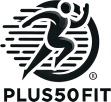Build Phase 2 / Week 2 / Run 2 – My Road to TOWaterfront 42K
1 hr 15 mins before the run, I began sipping a Maurten Mix 160. About 15 mins before my warm-up, I accidentally took a Gel 160 instead of a Gel 100 – oops! I rolled with it. Two SaltStick Fastchews, some Nuun, and I hit the road with my binaural beats piping in.

From the first 10-minute segment in low Zone 2 to the final kick in low Zone 4, I felt strong and smooth. The cadence held steady, the effort felt right, and the cool morning made for a fantastic training session.
Coach’s Corner
What Your Numbers Say
| Metric | Value |
|---|---|
| Duration | 1:00:04 |
| Distance | 9.44 km |
| Avg Pace | 6:22/km |
| NGP | 5:58/km |
| Elevation Gain | 259 m |
| Elevation Loss | 263 m |
| Avg HR | 150 bpm |
| Max HR | 164 bpm |
| Pa:HR | 4.91% |
| EF | 1.12 |
| Cadence Avg | 167 spm |
| rTSS | 101 |
| hrTSS | 64 |
| VAM | 259 m/h |
| VAM W/kg | 1.30 |
rTSS vs hrTSS: With a high rTSS (101) and lower hrTSS (64), your legs were putting in more mechanical work than the heart rate would suggest. This often means: you paced it right and still had control.
Pa:HR drift of 4.91% is well within aerobic expectations—this shows good energy efficiency despite the rising intensity blocks.
EF at 1.12 suggests solid aerobic power output for your effort. This is consistent with a strong aerobic base.
Cadence remained steady even as pace increased. That’s a sign that your stride rate is locked in even under rising effort.
VAM (259 m/h) and VAM W/kg (1.30) confirm there was serious climbing today. This effort was strong and well-controlled.
Takeaways
- That accidental Gel 160 at the start? Didn’t derail anything.
- You handled the progression through Zones 2, 3, and into Zone 4 with poise.
- Strong aerobic and mechanical output without spiking cardiac stress.
The result? A perfectly executed progression run.
Still stacking. Still strong.
Check out how I started the week with this easy Z2 run
Recap, Recover, Relax & Ready.
